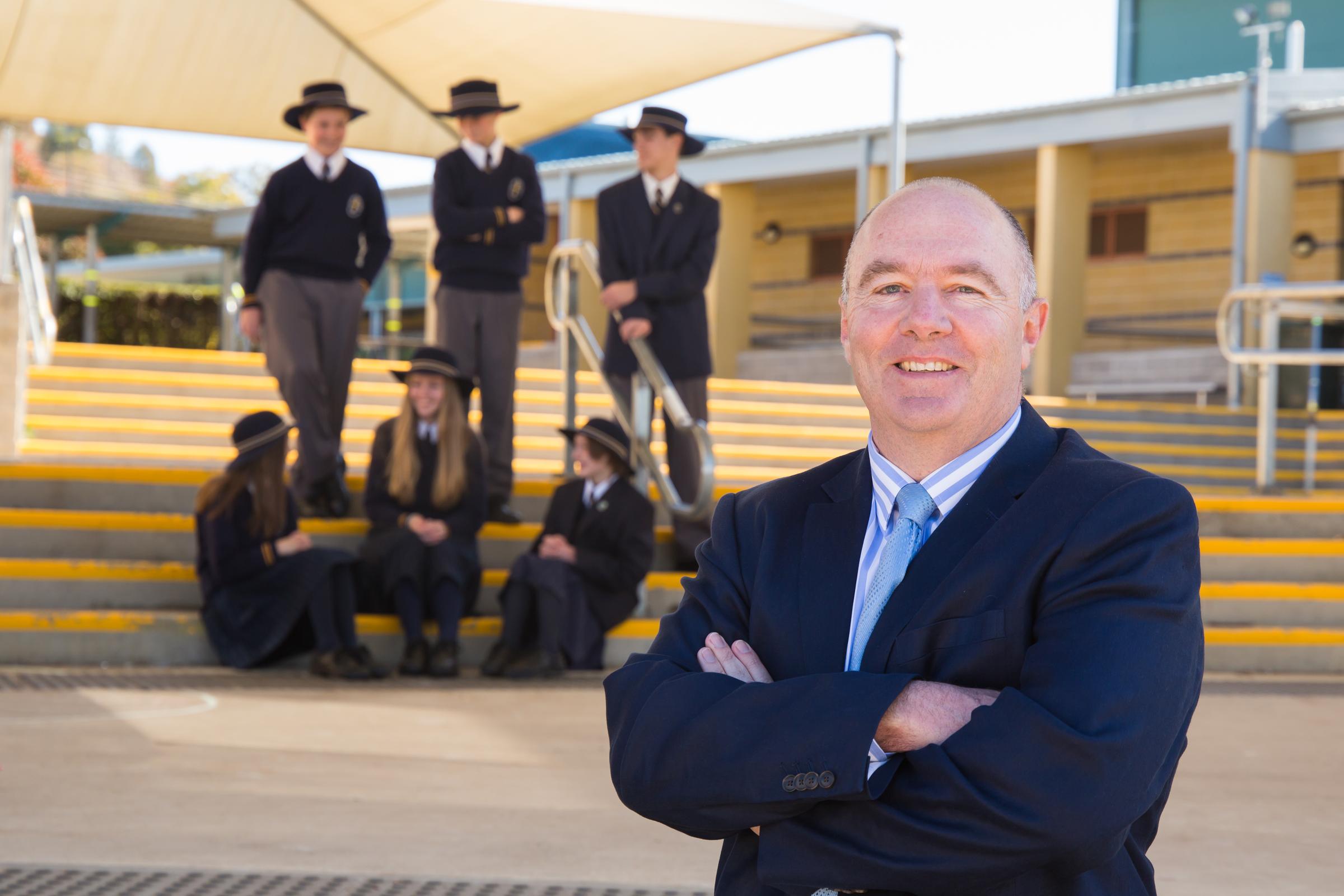Assistant Principal - Pastoral Care

Making a Good Start
It is always an exciting time to commence a new school year – energy levels are high, everyone is refreshed and renewed from a long break and new challenges appear exhilarating and stimulating … at least for the first few weeks and then old habits kick in or a heat wave of Biblical proportions hits the North West and makes it difficult to function full-stop.
Nevertheless, now is a good time to go back and review your son or daughter’s report from last year – particularly if you had a ‘Hulk’-moment when you first received it. A cool, calm and thoughtful discussion can be quite powerful at this point of the year – both you and they have had an opportunity to reflect (though most, particularly boys, will declare they forgot all about it – don’t be sucked into this vortex – simply open up the report and encourage them to re-read the document, happily jogging their memory) and are now in a position to actively do something as a result of the report.
Together, sit down and discuss the following:
- What areas was your child most pleased with – why? Outline what you were most proud of in their report and year’s work.
- What areas did they feel they improved most? What did they do to make this happen?
- What areas would they like to develop this year? What will they need to do to achieve this?
- What advice were the teachers giving to help in this regard? Or do I need to speak to someone to help work out what I need to do?
Boys (males in general) often want to avoid reflection but we know that to grow, reflection is a critical step in the process. Students will make a Learning Plan with their Mentor teacher and use this as a basis of tracking their progress over the course of the term and year and we encourage families to know what learning goals their student has set for themselves.
In conjunction with reflection, sustaining motivation is also an issue that needs to be considered as a new year unfolds. Motivation (that internal energy that drives us) waxes and wanes – it is difficult to sustain high levels of motivation all of the time – we become tired, distracted, frustrated and discouraged or just plain bored. When this happens it is easy to give up. But successful people don’t – we tend to explain this by the fact that they are ‘highly motivated’; as if they have been unusually blessed with some greater source of energy that we lack or didn’t receive a fair share when it was being handed out.
In reality this is not the case. Successful people have good habits and routines that they are able to fall back upon when motivation wanes. These habits and routines sustain them through the difficult and challenging times, times when others give up.
Often I am asked by parents how they can best help their young person achieve their potential. Increasingly my view is that the best, most effective thing you can do is help them create good habits and routines. Aristotle said: We are what we repeatedly do. Excellence then, is not an act, but a habit.
How can we do this?
Firstly, excellent resources are provided on the SchoolTV site: ‘Managing Screen time’, ‘School Transitions’ and ‘Surviving Final Year’ are most useful for parents and students. Students and parents can also access the Study Skills Handbook on the school website which also provides a wide range of support for students about working at home and commencing a new year.
Students need to set big goals but set a small task to complete – for example: I want to be a much stronger reader, I will read one page a night from this book. When we complete the small task it builds a sense of achievement and accomplishment – we are more likely to push on and do more.
Link the habits you want to create to other habits that you already have such as ‘I’ll do 10 minutes of Math homework before I eat dinner.’ Or ‘I’ll do 15 minutes of homework before I watch Home and Away.’ This is known as the ‘If-Then’ technique. If I am going to soccer training then I will do 10 minutes of music practice before I leave.
There are moments when we give up or throw our hands in the air and say ‘I couldn’t be bothered.’ Forestall such moments by planning – in particular if it involves resorting to gaming as a distraction or scrolling through notifications. Put the controls or phone in a different room so that you have to physically move to get them when you go to use them. Don’t leave them conveniently nearby. Try to do work at the same time in the same place in the same pattern.
Habits and routines are the foundation upon which success is built – not chance, not genetics nor in different allotments of motivation. Motivation grows when we feel successful and to be successful we need to cultivate strong habits and routines.
Micheal Larkin - Assistant Principal - Pastoral
